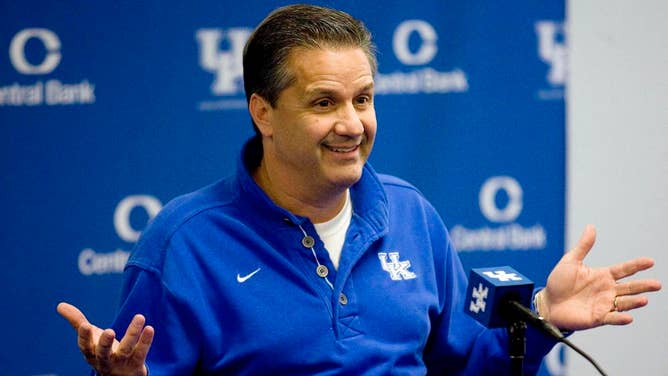Kentucky Becomes 7th State To Promise NIL Rights To College Athletes On July 1

There are seven days left until seven states are set to make their respective name, image, and likeness (NIL) laws effective for college athletes. Today, Kentucky officially became the seventh state, joining Florida, Alabama, Georgia, Mississippi, Texas, and New Mexico, as the only jurisdictions that can promise their athletes, with absolute certainty, that they will be afforded the ability to earn money outside of being paid purely for their play. While all athletes across the United States are expected to be afforded such rights by July 1, Dennis Dodd of CBS Sports says that the NCAA's approval may not come until June 30.
Thus, state legislatures continue to debate and pass NIL legislation, leaving it up to their respective governors to sign the bills into law. NIL legislation in Oregon, Ohio, Illinois, and Louisiana could soon become law as well. There are also NIL laws that have been signed in Nebraska and Oklahoma that allow schools in each state to begin allowing their athletes to take advantage of monetizing their NIL as soon as they wish. Thus, it is possible that roughly 25% of all states have an effective NIL on the books at the beginning of July.
What makes Kentucky's law special is that it comes by way of an executive order. Earlier today, Kentucky Governor Andy Beshear approved Executive Order 2021-418 so that schools in Kentucky do not suffer a competitive disadvantage while competitors in the Southeastern Conference, Atlantic Coast Conference, and others are able to provide NIL rights to their athletes and benefit from a recruiting advantage as a result of same.
Governor Beshear's executive order will remain in effect until it is superseded by state or federal law. While many bills have been proposed at the federal level, none of the legislation has made it out of committee and it is rather unlikely that there will be a consensus between political parties about what a proper NIL bill should look like, as well as whether it should go beyond NIL to cover items such as an athlete's health and safety, in the near future. Thus, the burden has remained with individual states to pass laws and keep pressure on the NCAA which, until now, has done absolutely nothing other than begging Congress to pass a federal law and suggest legislation to alter bylaws, which was never voted upon by its membership.
It is entirely possible that we will see more governors across the country follow the lead of Governor Beshear, who realized that there was probably not enough time for the Kentucky legislature to draft, debate, and approve NIL legislation between now and July 1. Understanding the value of providing guidance to the universities in the state when the NCAA has completely failed to do so on a nationwide basis, Governor Beshear stepped in quickly with a sensible executive order. College athletes in the state will have the right to enter into most types of endorsement contracts; however, those associated with alcohol, tobacco products, firearms or sexually oriented activities, or any that use or rely upon the intellectual property possessed by universities are off-limits.